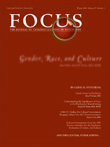Is ADHD a Risk Factor for Psychoactive Substance Use Disorders? Finding From a Four-Year Prospective Follow-Up Study
Abstract
Objective. To evaluate whether attention-deficit hyperactivity disorder (ADHD) is a risk factor for psychoactive substance use disorders (PSUD), attending to issues of psychiatric comorbidity, family history, and adversity. Method. Using assessments from multiple domains, the authors examined 140 ADHD and 120 normal control subjects at baseline and 4 years later. Drug and alcohol abuse and dependence were operationally defined. Results. No differences were detected in the rates of alcohol or drug abuse or dependence or in the rates of abuse of individual substances between the groups; both ADHD and control probands had a 15% rate of PSUD. Conduct and bipolar disorders predicted PSUD, independently of ADHD status. Family history of substance dependence and antisocial disorders was associated with PSUD in controls but less clearly so in ADHD probands. Family history of ADHD was not associated with risk for PSUD. ADHD probands had a significantly shorter time period between the onsets of abuse and dependence compared with controls (1.2 years versus 3 years, p<.01). Conclusions. Adolescents with and without ADHD had a similar risk for PSUD that was mediated by conduct and bipolar disorder. Since the risk for PSUD has been shown to be elevated in adults with ADHD when compared with controls, a sharp increase in PSUD is to be expected in grown-up ADHD children during the transition from adolescence to adulthood.



